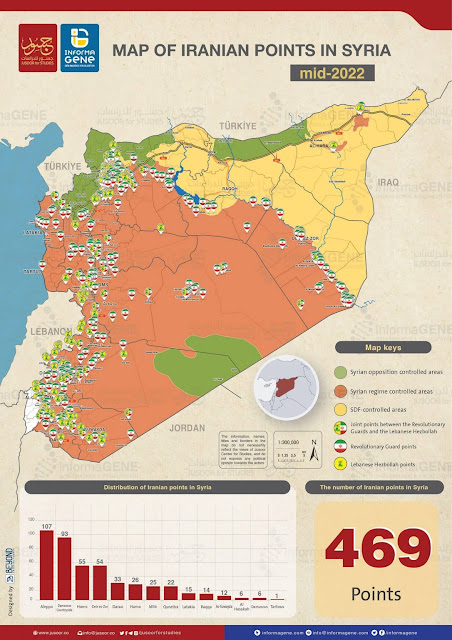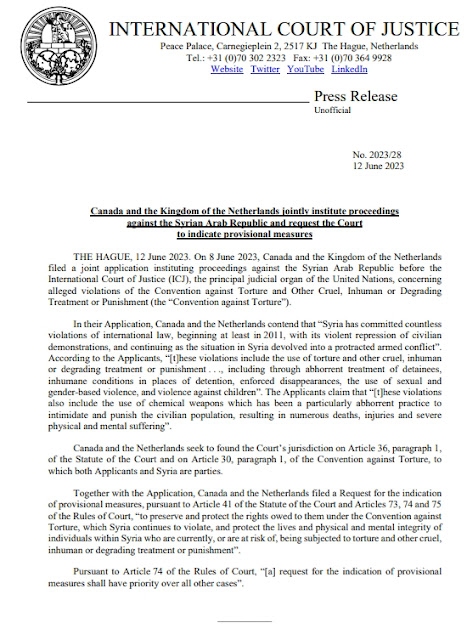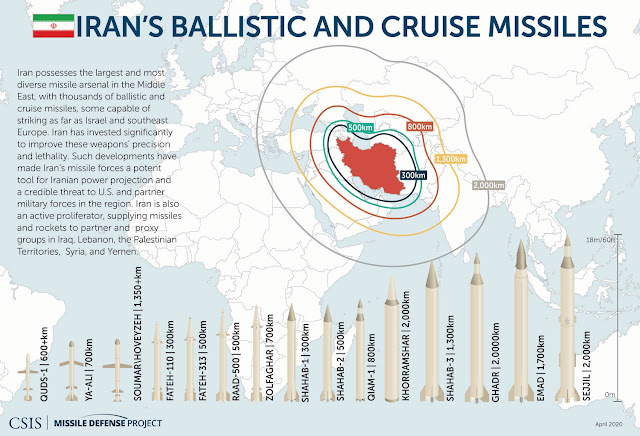Discussions Point Way to Better U.S.-Libyan Relations, Rice Says
Secretary of state also renews call for Iran to resume nuclear negotiations
Secretary of State Condoleezza Rice says that discussions with Libyan Foreign Minister Abd al-Rahman Shalgam point the way toward "better and better relations" between the Libyan and U.S. governments and people.
Speaking September 17 at a joint appearance with Shalgam in New York, where the United Nations General Assembly is holding its 60th session, Rice took particular note of Libya’s "historic decision of get rid of its weapons of mass destruction." (See related article.)
The brief joint appearance augmented a written joint statement, which notes that their discussion had covered issues including "expansion of the U.S.-Libya relationship, reform issues, human rights, and cooperation on counter-terrorism and elimination of weapons of mass destruction."
In the statement, Rice expressed appreciation for Libya’s efforts to resolve the situation in the Darfur region of Sudan and of Libyan cooperation in the global war on terror, while Shalgam reaffirmed Libya’s renunciation of terrorism in all its forms and its commitment "to continue cooperating in the international fight against terrorism." (See Darfur Humanitarian Emergency.)
Asked at their joint appearance about developments in Iran, Rice said that nation "needs to return to negotiations" on its nuclear development program -- negotiations that it unilaterally ended. (See related article.)
Iran’s past behavior "has left the world with a lack of confidence" in that nation’s willingness to live up to its International Atomic Energy Agency obligations, she said.
Following are the transcript of Rice’s remarks and the text of her joint statement with Shalgam:
(begin text)
U.S. Department of State
Remarks with Libyan Foreign Minister Abd al-Rahman Shalgam
Secretary Condoleezza Rice
Waldorf-Astoria Hotel
New York, New York
September 17, 2005
(4:30 p.m. EDT)
SECRETARY RICE: I just want to take a moment to welcome the Libyan Foreign Minister, Mr. Shalgam. We have had a very good discussion of a path toward Libyan-U.S. relations that will lead us to better and better relations between our people, between our governments.
Libya made a historic decision to get rid of its weapons of mass destruction and I think that it is paying off for Libya in the sense that American companies are there, that we are having this meeting and that we are talking about how to continue and push forward our relationship.
But I also wanted to say, Mr. Minister, is that it has been a good thing for the world and for the international community to see the leadership of Libya and your leader in making this historic decision, and a decision that was taken for peace. And thank you very much for that.
FOREIGN MINISTER SHALGAM: Madame, thank you, thank you --
QUESTION: Madame Secretary, what's your take on the recent developments of Iran here?
SECRETARY RICE: Well, I have not had an opportunity to read the speech of the Iranian President (inaudible) been in meetings all day, but it is very clear in conversations here that everyone understands what Iran needs to do. Iran needs to return to negotiations. It was in negotiations with the EU-3 when they decided unilaterally to leave those negotiations and resume its nuclear programs.
The problem is that Iran's behavior in the past concerning its IAEA obligations has left the world with a lack of confidence in Iran's willingness to live up to those obligations. That is why the EU-3 has talked to Iran about ways to meet its needs - energy needs - without access to the fuel cycle. That is why the Russians have structured their civilian nuclear Bushrer plant without access to the nuclear fuel cycle. And so I would hope that Iran would engage in realistic discussions with the rest of the world about what is possible. There's time for diplomacy but Iran needs to make a choice now to return to negotiations.
(end transcript of remarks)
(begin text of joint statement)
U.S. Department of State
Joint Statement
Office of the Spokesman
New York, New York
September 17, 2005
U.S. Secretary of State Condoleezza Rice
and Libyan Secretary Abd al-Rahman Shalgam
U.S. Secretary of State Condoleezza Rice and Libyan Secretary of the General People's Committee for Foreign Liaison and International Cooperation Abd al-Rahman Shalgam met today in New York. Their discussion covered the full range of bilateral issues, including expansion of the U.S- Libya relationship, reform issues, human rights, and cooperation on counter-terrorism and elimination of weapons of mass destruction.
Secretary Rice reaffirmed the U.S. commitment to working to broaden and deepen the relationship between Libya and the U.S, as Libya implements its undertakings.
Secretary Rice noted that American companies are returning to do business in Libya; and that increased economic and cultural ties benefit both countries. She expressed appreciation for Libya's efforts in working to resolve the situation in Darfur and Libyan cooperation in the global war on terror, and commended the historical decision made by the Libyan Leadership in December 2003 to eliminate weapons of mass destruction and ballistic missiles.
Secretary Shalgam praised growing bilateral ties, and reaffirmed Libya's commitment to the statements made in its letter addressed to the Security Council on August 15, 2003, renouncing terrorism in all its forms and pledging that it will not support acts of international terrorism or other acts of violence targeting civilians, whatever their political views or positions. Libyan also expressed its commitment to continue cooperating in the international fight against terrorism.
Secretary Rice noted that the path Libya had chosen was making the world a more peaceful place, serving the interest of Libya's own people, and adding to the security of all nations. She affirmed that as Libya continued this course, it would regain a secure and respected place among the nations of the world.
Secretary Shalgam pledged to cooperate in good faith with any further requests for information in connection with the Pan Am investigation.
Secretary Rice welcomed this assurance and the two parties agreed to continue and increase cooperation in areas of mutual interest.
(end text)
(Distributed by the Bureau of International Information Programs, U.S. Department of State. Web site: http://usinfo.state.gov)
Secretary of state also renews call for Iran to resume nuclear negotiations
Secretary of State Condoleezza Rice says that discussions with Libyan Foreign Minister Abd al-Rahman Shalgam point the way toward "better and better relations" between the Libyan and U.S. governments and people.
Speaking September 17 at a joint appearance with Shalgam in New York, where the United Nations General Assembly is holding its 60th session, Rice took particular note of Libya’s "historic decision of get rid of its weapons of mass destruction." (See related article.)
The brief joint appearance augmented a written joint statement, which notes that their discussion had covered issues including "expansion of the U.S.-Libya relationship, reform issues, human rights, and cooperation on counter-terrorism and elimination of weapons of mass destruction."
In the statement, Rice expressed appreciation for Libya’s efforts to resolve the situation in the Darfur region of Sudan and of Libyan cooperation in the global war on terror, while Shalgam reaffirmed Libya’s renunciation of terrorism in all its forms and its commitment "to continue cooperating in the international fight against terrorism." (See Darfur Humanitarian Emergency.)
Asked at their joint appearance about developments in Iran, Rice said that nation "needs to return to negotiations" on its nuclear development program -- negotiations that it unilaterally ended. (See related article.)
Iran’s past behavior "has left the world with a lack of confidence" in that nation’s willingness to live up to its International Atomic Energy Agency obligations, she said.
Following are the transcript of Rice’s remarks and the text of her joint statement with Shalgam:
(begin text)
U.S. Department of State
Remarks with Libyan Foreign Minister Abd al-Rahman Shalgam
Secretary Condoleezza Rice
Waldorf-Astoria Hotel
New York, New York
September 17, 2005
(4:30 p.m. EDT)
SECRETARY RICE: I just want to take a moment to welcome the Libyan Foreign Minister, Mr. Shalgam. We have had a very good discussion of a path toward Libyan-U.S. relations that will lead us to better and better relations between our people, between our governments.
Libya made a historic decision to get rid of its weapons of mass destruction and I think that it is paying off for Libya in the sense that American companies are there, that we are having this meeting and that we are talking about how to continue and push forward our relationship.
But I also wanted to say, Mr. Minister, is that it has been a good thing for the world and for the international community to see the leadership of Libya and your leader in making this historic decision, and a decision that was taken for peace. And thank you very much for that.
FOREIGN MINISTER SHALGAM: Madame, thank you, thank you --
QUESTION: Madame Secretary, what's your take on the recent developments of Iran here?
SECRETARY RICE: Well, I have not had an opportunity to read the speech of the Iranian President (inaudible) been in meetings all day, but it is very clear in conversations here that everyone understands what Iran needs to do. Iran needs to return to negotiations. It was in negotiations with the EU-3 when they decided unilaterally to leave those negotiations and resume its nuclear programs.
The problem is that Iran's behavior in the past concerning its IAEA obligations has left the world with a lack of confidence in Iran's willingness to live up to those obligations. That is why the EU-3 has talked to Iran about ways to meet its needs - energy needs - without access to the fuel cycle. That is why the Russians have structured their civilian nuclear Bushrer plant without access to the nuclear fuel cycle. And so I would hope that Iran would engage in realistic discussions with the rest of the world about what is possible. There's time for diplomacy but Iran needs to make a choice now to return to negotiations.
(end transcript of remarks)
(begin text of joint statement)
U.S. Department of State
Joint Statement
Office of the Spokesman
New York, New York
September 17, 2005
U.S. Secretary of State Condoleezza Rice
and Libyan Secretary Abd al-Rahman Shalgam
U.S. Secretary of State Condoleezza Rice and Libyan Secretary of the General People's Committee for Foreign Liaison and International Cooperation Abd al-Rahman Shalgam met today in New York. Their discussion covered the full range of bilateral issues, including expansion of the U.S- Libya relationship, reform issues, human rights, and cooperation on counter-terrorism and elimination of weapons of mass destruction.
Secretary Rice reaffirmed the U.S. commitment to working to broaden and deepen the relationship between Libya and the U.S, as Libya implements its undertakings.
Secretary Rice noted that American companies are returning to do business in Libya; and that increased economic and cultural ties benefit both countries. She expressed appreciation for Libya's efforts in working to resolve the situation in Darfur and Libyan cooperation in the global war on terror, and commended the historical decision made by the Libyan Leadership in December 2003 to eliminate weapons of mass destruction and ballistic missiles.
Secretary Shalgam praised growing bilateral ties, and reaffirmed Libya's commitment to the statements made in its letter addressed to the Security Council on August 15, 2003, renouncing terrorism in all its forms and pledging that it will not support acts of international terrorism or other acts of violence targeting civilians, whatever their political views or positions. Libyan also expressed its commitment to continue cooperating in the international fight against terrorism.
Secretary Rice noted that the path Libya had chosen was making the world a more peaceful place, serving the interest of Libya's own people, and adding to the security of all nations. She affirmed that as Libya continued this course, it would regain a secure and respected place among the nations of the world.
Secretary Shalgam pledged to cooperate in good faith with any further requests for information in connection with the Pan Am investigation.
Secretary Rice welcomed this assurance and the two parties agreed to continue and increase cooperation in areas of mutual interest.
(end text)
(Distributed by the Bureau of International Information Programs, U.S. Department of State. Web site: http://usinfo.state.gov)


